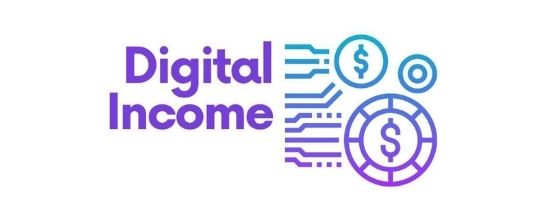
Although companies have been moving online for years, the pandemic certainly quickened the pace at which it is happening, and this is opening discussions for tax changes that are not favorable to many people and businesses. In particular, Digital Service Taxes (DST) are becoming more and more readily seen around the world; either they have been proposed or they’re already in place. These DSTs are aimed largely at big online businesses such as Amazon and Google, but do not be fooled: they will also have an impact on small online businesses.
The digital economy is growing at a major pace; in fact, it is growing 2.5 times faster than the GDP. As you might imagine, governments around the world are wanting to get their hands on their share of the taxes entailed in this shift. This isn’t anything new. For instance, in 2018, the European Commission (EC) proposed a temporary DST at a 3% rate for income derived from certain types of online income, such as online advertising services.
The United States at that time said that they would not be partaking in anything of the like. Since then, however, the U.S. has changed their position. Tax changes promoted by the Biden administration promise that a DST of some fashion would become a reality in the U.S. America would join countries including Austria, France, India, Italy, Kenya, Poland, and the United Kingdom. These policies are emerging in various corners of the world, and a long list of countries who have not yet put them into place are proposing and discussing possibilities now.
The bottom line on DSTs is that they are here, and now that they are, you can expect to see these taxes move forward in more countries - even in your very own.
Why DST is Controversial
It is seen as controversial for many reasons. For one, taxing profits based on where users reside is a violation of international agreements because they are taxing income more than one time. So, is this just a new fad that is going to die out, or is it more of the new normal? We feel confident it is just a part of the new normal. Online retail is never going back to where it was before, and the governments of the world are going to figure out ways to take their piece of the pie.
So, what is the answer? For many, the answer is going offshore into a jurisdiction where DSTs are not expected to come into play. Or, at a minimum, go into an offshore country with less DSTs than your own.
Offshore Solution Case Study: Wyoming
Let us take for example Wyoming.
We all know Wyoming is a major offshore hub, and it’s on the radar of wealthy people and corporations around the world. Why? Well, for starters, Wyoming has zero personal income tax and zero taxes on corporation income. This alone is a major selling point for many. Wyoming is also especially favorable towards online businesses, making it easy for clients to form and open their account in the state. Wyoming banks offer online portals where you can do all the transactions you need, which also makes this state a viable option for ecommerce businesses.
Wyoming also makes it simple to quickly incorporate there, another benefit enjoyed by those looking to escape DSTs. Corporations can enjoy a long list of benefits that include all of these but also minimal paperwork and fees, which reduces the hassle and startup costs of becoming based in Wyoming.
Perhaps most interesting to clients is the fact that Wyoming is based in the United States, which, to the surprise of many, is the most secretive offshore jurisdiction out there. Corporations based in Wyoming do not have to worry about their taxation or other information being revealed to other jurisdictions. Directors and shareholders do not appear in public records, which is also appealing to corporations from offshore jurisdictions.
Takeaway
We are living in a time when domestic and global economies are in unparalleled conditions because of the pandemic and political turmoil. Governments have eagerly demonstrated how, sorry to say, greedy they are. We all saw how little time it took for cryptocurrency to become the object of taxation. Now, the governments of the world are looking to go after a major portion of income derived from online sales, and while they say that DSTs will not affect the little guy, that couldn’t be further from the truth.
It doesn’t matter if you have a multi-billion-dollar online platform or a mom and pop style online shop, then you need to know what DSTs are and what you can do to avoid them.
Read also "Ways to Open an Offshore Bank Account Remotely"
APR
2021

Table of Contents